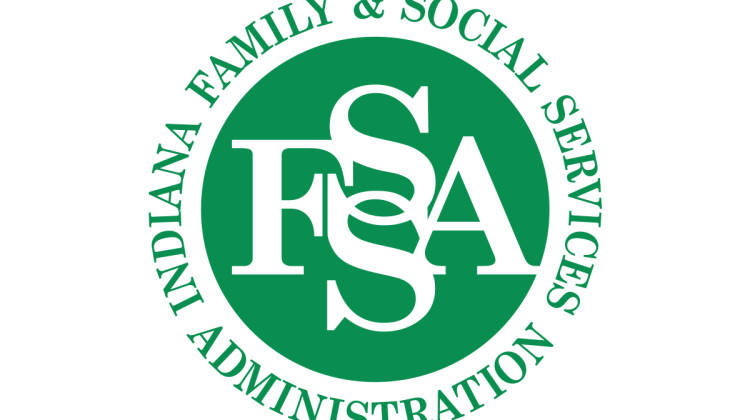
The Aged and Disabled waiver provides services that assist people with daily tasks and independence. These services can be vital for people who want to age in place and people with disabilities that prefer home-based services.
Courtesy of Indiana Family and Social Services AdministrationHoosiers with disabilities or those who want to age in place may have a harder time accessing services under an important Medicaid waiver.
The Family and Social Services Administration will implement a waitlist for the Aged and Disabled waiver as part of its effort to address the state’s Medicaid shortfall.
In January, FSSA included the possibility of a waiting list in its strategies in response to the $1 billion shortfall. FSSA recently announced the waiver reached the maximum capacity of “slots,” meaning people looking to receive services through the waiver will have to wait for a new slot to open.
In July, the agency will have 5,000 additional slots that can be split between the Aged and Disabled Waiver, and another home and community-based services waiver.
Kim Dodson, CEO of the ARC of Indiana, said the wait for services could already be as long as two years, and the number of people on the waitlist already surpasses the total number of slots that will be available in July.
“Every week they go without services, every day they go without services could be life-threatening,” Dodson said.
The Aged and Disabled waiver provides services that assist people with daily tasks and independence. These services can be vital for people who want to age in place and people with disabilities that prefer home-based services.
“It keeps the family unit intact, which is really what we want and should be striving for, for the state of Indiana,” Dodson said. “We don't want to lose any of that progress. We are extremely concerned that this waiting list is going to really put a lot of strain on a lot of families who have wanted to keep their loved ones at home with them.”
Dodson said waiting lists are common, but the Aged and Disabled waiver hasn’t had one in years. In the late '90s and early 2000s, the state had a wait of more than 20 years for these services, but the state put in a lot of effort to “realign” its waivers and decrease the wait.
“The state of Indiana has made, again, decades of progress in home and community-based services. We want to continue to be a model for other states, not be like other states,” Dodson said.
However, FSSA said the growth of the home- and community-based waivers is unsustainable. In recent years, the demand for these services has grown, especially during the COVID-19 pandemic.
Dodson said she respects FSSA’s approach, but hopes the state takes care of the “most vulnerable Hoosiers” and avoids shifts to the institutional models of care.
“As they put forth all of these proposals and changes to bring the Medicaid revenue forecast into alignment,” Dodson said. “I hope that they looked at where does it makes the least impact on human beings.”
Dodson said the waitlist affects people's access to vital services, but the future of the Aged and Disabled waiver is unclear.
Additional slots for the Aged and Disabled waiver would require more Medicaid funding from the Indiana General Assembly.
Join the conversation and sign up for the Indiana Two-Way. Text "Indiana" to 765-275-1120. Your comments and questions in response to our weekly text help us find the answers you need on statewide issues and the election, including our project Civically, Indiana.
Dodson said her organization is working to educate legislators on the importance of these services and programs, but the General Assembly isn’t the only concern. She said the state will have a new administration in November, which makes this bad timing for trying to address the waitlist.
“That could bring with it a whole new group of people into the Family and Social Services Administration that have far different priorities than the people that are in place now,” Dodson said. “Then it takes time for those individuals to get into new roles, to get caught up and to speed, to get educated about why things were the way that they were.”
FSSA provided an overview of what the waiting process will look like for people seeking services. Dodson said she hopes the agency will check with families that are on the waiting list to let families know their name “hasn’t gotten lost.” She said the goal is to provide families with hope that access to services isn’t gone.
Abigail is our health reporter. Contact them at aruhman@wboi.org.
 DONATE
DONATE






 Support WFYI. We can't do it without you.
Support WFYI. We can't do it without you.